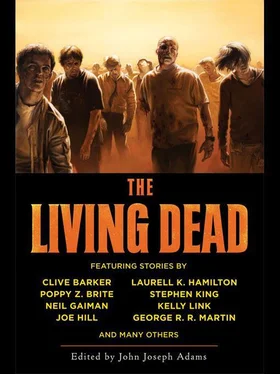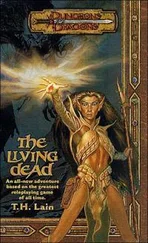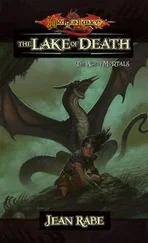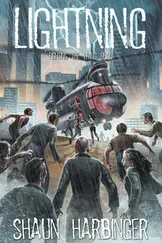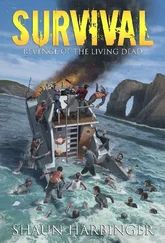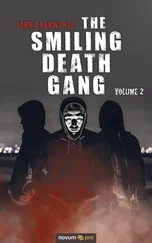It wouldn’t have been until that Dunkin’ Donuts was a good thirty, forty minutes in his rearview mirror that the driver would have felt his right elbow throbbing. When he glanced down, he saw blood on the seat and floor. He turned his arm over. His stomach squeezed at the torn skin bright with blood, the pair of broken teeth protruding just above the joint. His foot relaxed on the gas; the truck slowed to the point it was barely moving. His vision constricted to a tunnel; he wondered if he was about to faint. He took the wheel with his right hand, reached around with his left, and felt for the jagged edges of the eater’s teeth. The blood made them slippery, hard to keep hold of. He dug his fingers into his skin, seeking purchase, but that only squeezed out more blood. There was no choice; he had to stop. He clicked on the hazards, steered to the shoulder, and set the brake. He did not turn off the engine. He leaned over and slid the First Aid box out from under his seat. His fingers slipped on the catch. Once he had it open, he found the bottle of sterile saline and the stack of gauze bandages. He sprayed half the bottle over his elbow, unwrapped a couple of bandages, and wiped his skin. There was a pair of tweezers in the box; despite his shaking hand, he succeeded in tugging one, and then the other, tooth from his arm. Their extraction caused more bleeding. He dropped the tweezers on the floor, next to the teeth, and emptied the remainder of the saline on his elbow. There were enough gauze pads left for him to wipe his elbow off and improvise a bandage using the roll of surgical tape.
No one really understood what brought the eaters out of the ground, up off their tables in the morgues and funeral homes, in the first place. There was all kinds of speculation, some of it ridiculous—Hell was full: Ted and I had a good laugh over that one—some of it more plausible but still theoretical—NPR had on a scientist from the CDC who talked about a kind of super-bacteria, like a nasty staph infection that could colonize a human host in order to gain more flesh to consume; although that seemed like a lot for a single microorganism to accomplish. Besides, none of the eaters the government had captured showed the slightest response to any of the antibiotics they were injected with. I wondered if it was a combination of causes, several bacteria working together, but Ted swore that was impossible. Because the IT thing made him an expert in bacteriology, too.
What we did know was that, if an eater got its teeth in you, even if you escaped becoming its next meal, you were finished all the same. It just took longer—between thirty minutes and forty-eight hours. The initial symptoms were a raging fever, swollen and tender glands, and a tongue the color of old meat; in short order, these were followed by hallucinations, convulsions, and death. Anywhere from five minutes to two hours after your heart had ceased beating, your body—reanimated was the technical term. It was incurable, and if you presented to your doctor or a hospital ER with the telltale signs, you were taken as fast as possible to a hospital room, hooked up to monitors for your heart rate and blood pressure, and strapped onto a bed. If there was an experimental cure making the rounds that day, it would be tested on you. When it didn’t work, you would be offered the services of the clergy, and left for the inevitable. An armed guard was stationed outside your door; after the monitors had confirmed your death, he would enter the room, unholster his pistol, and make sure you didn’t return. At first, the guards were given silencers, but people complained, said they felt better hearing the gunshot, knowing they were safe.
I don’t know how much of this the driver knew, but I’m guessing he’d heard most of it, which is why he didn’t take himself to the nearest hospital as soon as he realized what had happened to him. Instead, he switched off the hazards, released the brake, and headed back out onto the road. It could be he was thinking he had to make this last delivery while he could, but I doubt it. He was already dead; his body simply needed to catch up to that fact. His mind, though—his mind was not having any of this. As far as his mind was concerned, he’d scraped his arm, that was all, hardly enough to have turned him into one of those things, and if he went on with this day the way he’d intended, everything would be fine. If he had to roll down his window, because the cab had grown so hot he checked to be sure he hadn’t turned the heater on high, he must be fighting off the cold that was making the rounds at work. That same cold must be what was causing the skin under his jaw to feel so sore. The temptation to tilt the rearview mirror so he could inspect his tongue must have been almost too much to resist.
If the driver heard anything moving in the back of the truck, he probably assumed it was more of the plastic crates come loose, maybe a piece of furniture that had broken the straps securing it. Of course, by then his fever would have ignited, so the eaters could have banged around the inside of that container for the hours it took him to complete what should have been a sixty-minute trip and I doubt he would have noticed. Or, the sounds might have registered, but—you know how it is when you’re that sick: you’re aware of what’s going on around you, but there’s a disconnect—it fails to mean what it should. How else do you explain what led this guy to drive a large moving truck full of eaters into the middle of a neighborhood—into the middle of our neighborhood—my neighborhood, the place where I lived with my husband and my kids, my girl and my boy—how else do you explain someone fucking up so completely, so enormously?
That’s right—the truck that came to a stop outside the house (as I watched bubbles forming at the bottom of the pot of water I was heating) was full—it was packed with eaters. Don’t ask me how many. And no, I don’t know how they got in there. I’d never heard of anything like that before. Maybe the things were chasing someone who climbed into the back of the truck thinking the eaters wouldn’t be able to follow them and was wrong. Maybe the eaters started as a group of infected who were in the same state of denial as the driver and wanted to hide themselves until they recovered—which, of course, they didn’t. Maybe they didn’t jump into the truck all at the same time: maybe a few were in pursuit of a meal, a few more were looking to hide, and a few others thought they’d found a cool place to escape the sun. As the fever soared within him, his neck ached so bad swallowing became agony, his tongue swelled in his mouth, the driver must have let the truck slow to a stop over and over again, leaning his head on the steering wheel for whatever comfort its lukewarm plastic could provide. There would have been plenty of opportunities for eaters to hitch a ride with him.
I don’t know what that man’s fate was, whether he died the moment he set the parking brake, or opened the door and stepped down from the cab to let his customers know their furniture had arrived, or if the eaters figured out the door handle and dragged him from his seat. But I hope they got to him first; I hope he found himself in the middle of a group of eaters and had consciousness left to understand what was about to happen to him. I hope—I pray; I get down on my knees and plead with God Almighty that those things ripped him apart while his heart was still beating. I hope they stripped the flesh from his arms and legs. I hope they jammed their fingers into him and rooted around for his organs. I hope they bit through his ears the way you do a tough piece of steak. I hope he suffered. I hope he felt pain like no one ever felt before. That’s why I spend so much time imagining him, so that his death can be as real—as vivid—to me as possible. I—
Читать дальше
Конец ознакомительного отрывка
Купить книгу
